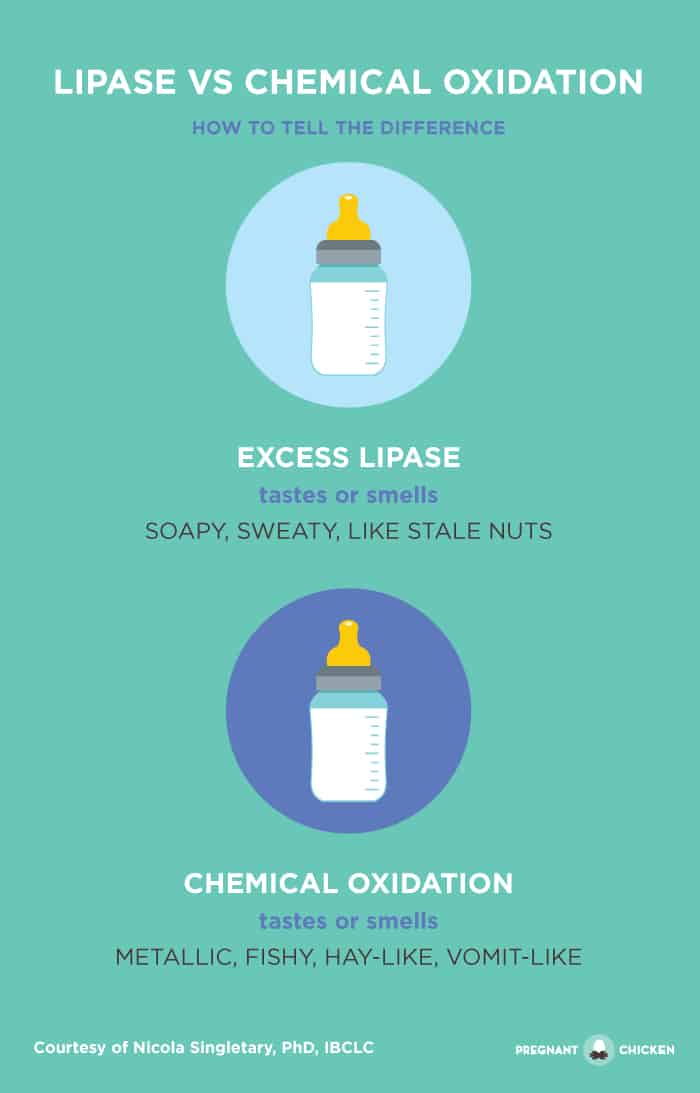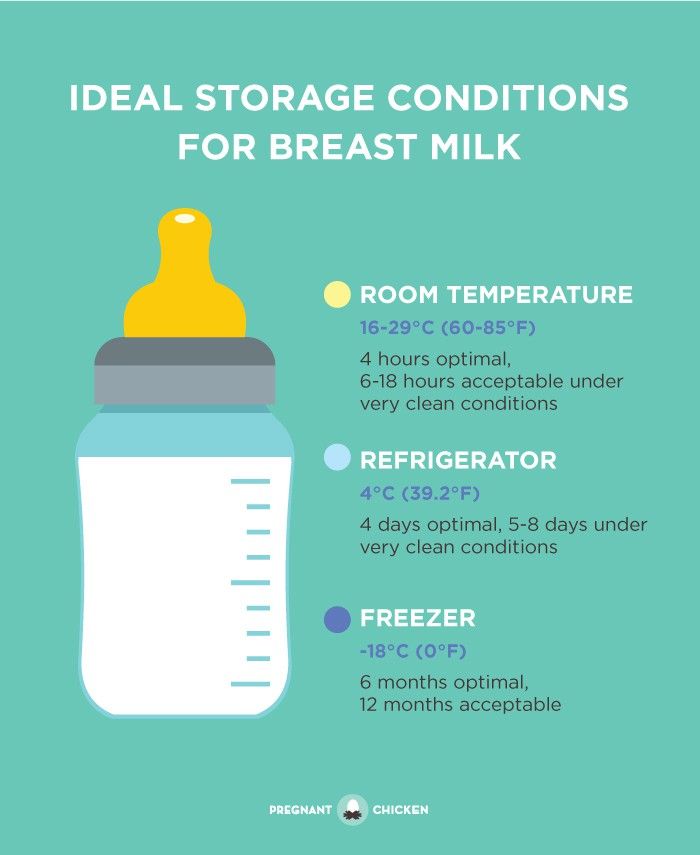The Problem. Your thawed breast milk smells gross. You take a sip and spit it out in the sink. Has your milk spoiled while it was frozen? You have put so much work into building your stash! Will you have to throw out all the milk in the freezer?
The Answer. Probably not.
It is likely that you are dealing with either lipase or chemical oxidation, neither of which is as catastrophic as it seems in that moment. Both will make your breast milk smell gross and taste “off” but neither is harmful to your baby.
Common reasons breast milk smells weird
Here are the two most common reasons breast milk smells gross - lipase and chemical oxidation
Lipase
Lipase is an enzyme normally found in human breast milk which actually serves useful purposes. It helps with digestion and nutrient absorption as well as protection against certain protozoa.
Unfortunately, lipase is also an overachiever and continues its hard work even when frozen, eventually leading to an unpleasant taste in thawed milk.
Some people have an issue with this in their frozen milk and some do not. The good news is that most babies will drink it anyhow.
To prevent this in the future, you can scald fresh milk before you freeze it which deactivates the lipase.
To scald milk: Heat milk to about 180 F (82 C), or until you see little bubbles around the edge of the pan (not to a full, rolling boil). Quickly cool and store.
Unfortunately, this does reduce the beneficial immunological properties of the milk, so it’s not recommended.
That said, you have to do your own cost benefit analysis on this. Most babies will drink the milk without any issue and therefore scalding the milk may be unnecessary. For babies that reject the thawed milk, scalding it before freezing can keep you from having to throw out otherwise good milk.
Chemical Oxidation
Chemical oxidation of breast milk is thought to be related to the mother’s intake of polyunsaturated fats and iron or copper levels in tap water. Therefore, reducing polyunsaturated fats in your diet and drinking bottled water may help.
According to Dr. Nicola Singletary, PhD, MAT, IBCLC, “There is a lot of information out there about lipase issues, but very little about chemical oxidation. And most of what we know is found in dairy industry journals.”
Dr. Singletary cautions, “In the experience I have with milk oxidation, I have found that it does not come and go quickly, and we really do not know how long diet changes would take to change milk, as the fats in the milk are pulled from diet and maternal fat stores.”
As with lipase, most babies do not reject milk based on taste and it is perfectly safe to serve.
How Do I Tell The Difference?
So we know what the most common reasons are for breast milk smelling weird, but how do you tell them apart?
Excess lipase is described as tasting or smelling soapy and sweaty, like stale nuts
Chemical oxidation is described as vomit-like, metallic, fishy, or hay-like

Other than taste, Dr. Singletary says one way to differentiate between lipase and chemical oxidation is whether scalding the fresh milk fixes the problem. “If a parent heats the milk to deactivate the lipase and it tastes bad after heating, that indicates chemical oxidation as the heat speeds the oxidation.”
“For both lipase and chemical oxidation, it can help to freeze milk as soon after expressing as you can and store for the shortest time possible. When you thaw the milk, do so in the refrigerator rather than hot water.” says Dr. Singletary.
If you have a baby who does not readily accept the milk you already have in the freezer, you can try mixing it with fresh milk.
How can I tell if the milk really has gone bad?
As long as you are following proper breast milk storage guidelines, the milk should be safe to drink. The ideal storage conditions for breast milk are:

Takeaways
Both lipase activity and chemical oxidation are normal and harmless variations of breastmilk that happen during storage and most babies will drink it without issue.
To help mitigate this, freeze milk quickly after expression and for as short a duration as possible.
For lipase, you can also scald the milk before freezing, though that does reduce the immunological value of the milk.
If chemical oxidation is the issue, scalding will make it worse. So only test it on a small amount first.
You can mix fresh milk with frozen to convince a pickier baby to drink the off-tasting milk.
Related: I Packed Up the Pump – For Both of Us




Leave a Comment